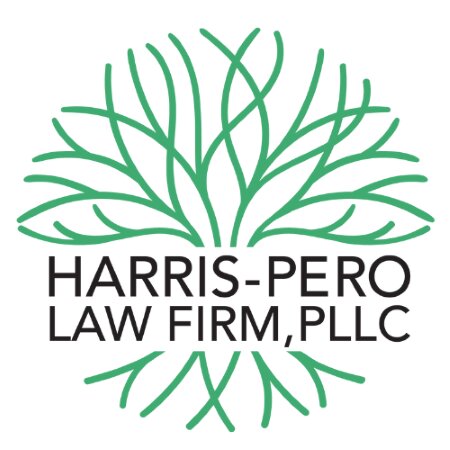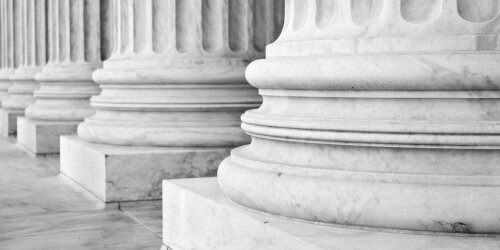Best Accounting & Auditing Lawyers in New York
Share your needs with us, get contacted by law firms.
Free. Takes 2 min.
Or refine your search by selecting a city:
List of the best lawyers in New York, United States
About Accounting & Auditing Law in New York, United States
Accounting and auditing are essential components of the financial landscape in New York, United States. These fields are regulated by a combination of federal and state laws designed to maintain transparency, accuracy, and integrity in financial reporting. In New York, accounting and auditing professionals, such as Certified Public Accountants (CPAs), must adhere to strict guidelines governed by state law and regulatory bodies. The laws ensure that both individuals and businesses are compliant with state and federal financial regulations, and that their financial statements accurately represent their financial positions.
Why You May Need a Lawyer
Accounting and auditing can encompass complex financial and legal matters. There are several common situations where you might require the help of a lawyer specializing in this field, including:
- Facing an audit or enforcement action from the Internal Revenue Service or New York State Department of Taxation and Finance
- Contesting or appealing financial penalties or tax assessments
- Ensuring compliance with state or federal accounting and auditing standards
- Handling suspected fraud, embezzlement, or other financial crimes
- Dealing with disputes between partners or shareholders about financial reporting
- Structuring business transactions or mergers that involve complex accounting issues
- Navigating professional disciplinary actions against accountants or auditors
- Addressing whistleblower complaints or investigations into accounting practices
- Drafting or reviewing internal procedures for compliance purposes
Local Laws Overview
New York’s accounting and auditing laws are outlined in the New York State Education Law, Article 149, which regulates the practice of public accountancy. Key aspects include:
- Licensing and Regulation: CPAs and Public Accountants (PAs) must be licensed by the New York State Education Department Office of the Professions. Continuing education is required to maintain licensure.
- Professional Standards: Practitioners must comply with generally accepted accounting principles (GAAP) and auditing standards as set by organizations like the Financial Accounting Standards Board (FASB) and the American Institute of Certified Public Accountants (AICPA).
- Ethical Responsibilities: Accountants must adhere to the New York State Board of Public Accountancy’s code of ethics, prohibiting conflicts of interest, false reporting, and breach of confidentiality.
- Reporting Requirements: Businesses may be subject to mandatory audits under certain circumstances, such as upon reaching revenue thresholds or when publicly traded.
- Disciplinary Actions: The New York State Board for Public Accountancy investigates complaints and may impose sanctions, including license suspension, for violations.
- Tax Laws: In addition to federal requirements, businesses and individuals must comply with New York State and local tax laws, which may have accounting implications.
Frequently Asked Questions
What is the role of a CPA in New York?
A Certified Public Accountant (CPA) in New York performs audits, prepares financial statements, files tax returns, and provides advisory services. CPAs must be licensed and follow state and federal laws.
Do I need to hire an accountant or an attorney for an audit?
In most cases, a CPA handles accounting audits. However, if legal issues arise or you face penalties, it's advisable to consult an attorney who specializes in accounting and auditing law.
What should I do if I am being audited by the IRS or New York State?
You should gather all relevant financial documents and consult with an accountant or attorney. A lawyer can help you understand your rights, represent you in hearings, and assist with negotiations.
What are the penalties for violating accounting laws in New York?
Penalties can range from fines and restitution to license suspension or revocation. Severe violations, such as fraud, may result in criminal charges.
How can I verify if a CPA is licensed in New York?
You can check the status of a CPA's license through the New York State Education Department Office of the Professions online database.
Are there specific accounting requirements for New York businesses?
Yes, businesses must follow New York State tax laws and maintain accurate financial records. Certain businesses, such as publicly traded companies, may face additional auditing requirements.
Can I appeal a disciplinary action taken against my accountant?
Yes, disciplinary actions imposed by the New York State Board for Public Accountancy can be appealed. An attorney can help guide you through the process.
What accounting standards must be followed in New York?
Most accounting in New York abides by GAAP, and audits follow standards set by bodies like the AICPA. Additional state-specific requirements may apply for certain entities.
How often must CPAs renew their licenses in New York?
CPAs in New York must renew their licenses every three years and complete a mandated number of continuing education credits.
What should I do if I suspect accounting fraud in my company?
Document your concerns and contact a lawyer who specializes in accounting fraud. You may also report the suspected fraud to the New York State Board for Public Accountancy or law enforcement, depending on the situation.
Additional Resources
If you require further information or access to professional guidance, the following resources may be helpful:
- New York State Board for Public Accountancy - Oversees CPA licensing and professional conduct
- Internal Revenue Service (IRS) - Federal tax audit and compliance
- New York State Department of Taxation and Finance - State tax information and audit guidance
- American Institute of Certified Public Accountants (AICPA) - Professional standards and resources for CPAs
- Financial Accounting Standards Board (FASB) - Sets accounting standards in the United States
- Local bar associations - Offer referrals to attorneys with accounting and auditing expertise
Next Steps
If you are facing an audit, have concerns about accounting compliance, or suspect financial wrongdoing, it is important to act quickly. Start by gathering all relevant documents, such as financial statements, correspondence, and tax records. Reach out to a qualified legal professional experienced in accounting and auditing law in New York. A lawyer can provide tailored advice, develop a strategy to protect your interests, and represent you in dealings with regulatory or law enforcement agencies. To find an attorney, you may use professional directories, bar association referral services, or seek recommendations from trusted professionals.
Lawzana helps you find the best lawyers and law firms in New York through a curated and pre-screened list of qualified legal professionals. Our platform offers rankings and detailed profiles of attorneys and law firms, allowing you to compare based on practice areas, including Accounting & Auditing, experience, and client feedback.
Each profile includes a description of the firm's areas of practice, client reviews, team members and partners, year of establishment, spoken languages, office locations, contact information, social media presence, and any published articles or resources. Most firms on our platform speak English and are experienced in both local and international legal matters.
Get a quote from top-rated law firms in New York, United States — quickly, securely, and without unnecessary hassle.
Disclaimer:
The information provided on this page is for general informational purposes only and does not constitute legal advice. While we strive to ensure the accuracy and relevance of the content, legal information may change over time, and interpretations of the law can vary. You should always consult with a qualified legal professional for advice specific to your situation.
We disclaim all liability for actions taken or not taken based on the content of this page. If you believe any information is incorrect or outdated, please contact us, and we will review and update it where appropriate.
Browse accounting & auditing law firms by city in New York
Refine your search by selecting a city.














